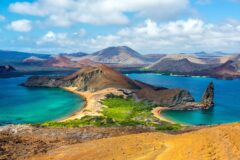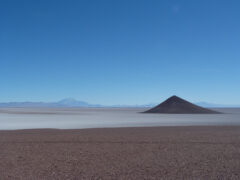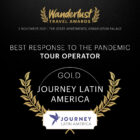Rainforest, reef and ruins

Well, for one thing, it has Central America’s largest tract of virgin rainforest. It also has the Bay Islands with their spectacular coral reefs. And then there’s Copán - the crowning glory of Mayan achievement. You could say Honduras offers the best of Central America in one small country.
Snug in the western highlands of Honduras, Copán has been hailed as the Athens of the New World. No other Mayan site has yielded more exquisite carvings. Tall stone pillars, or stelae, depicting some of Copán’s great rulers, sprout from the forest clearing in which the ruins stand. There are temples beneath temples - the compressed 400-year dynasty of 16 kings through which archaeologists have burrowed to reveal intricate hieroglyphs and elaborate façades.
Most people visit the ruins from nearby Copán Ruinas, a small colonial town with cobbled streets and whitewashed houses. High in the tobacco-growing hills of the Río Copán Valley the quiet settlement offers cool respite from the humid lowlands. It is along the Caribbean coastal plain, however, that many of the natural highlights of Honduras are to be found.
Tela, a scruffy, bustling Caribbean beach town tipped by developers as ‘Cancún waiting to happen’ - is the gateway to two national parks. The mangrove-fringed channels of Punta Isopo are perfect for exploring by kayak where, in the sultry prelude to a thunderstorm, the place falls eerily quiet and expectant - just the occasional ratchet call of a kingfisher breaking the silence. The wildlife seems more exuberant in Punta Sal National Park where tangled forest raves to the techno-bawl of cicadas and the whoops of howler monkeys.
Further along the coast, another rainforest reserve called Pico Bonito National Park is renowned for bird-watching (Honduras has over 730 species), hiking and white-water rafting. There is even a luxurious ‘eco-lodge’ - which combines sweaty jungle rambles with fine cuisine, sumptuous cabins and a swimming pool.
It’s a far cry from La Mosquitía. There are virtually no tourist facilities in this remote north-eastern corner of the country dubbed Central America’s ‘Little Amazon’. An expedition into the Río Plátano Biosphere Reserve relies on expert guiding, copious insect repellent and buttocks capable of withstanding at least three day’s travel by dugout canoe.
What the Mosquito Coast lacks in creature comforts, it more than compensates for with fascinating insights into traditional culture. At Plaplaya, Garífuna villagers can be seen fishing with cast nets and using flour from ground cassava tubers to bake pancake-thin bread. Both traditions stem from their African ancestry. Descended from slaves shipwrecked near St Vincent in 1635, the Garífuna were exiled to Honduras by the British over a century later.
Living alongside the Garífuna, the Miskito are thought to be derived from an extraordinary cultural mêlée of 17th century English pirates, African slaves and indigenous Sumu Indians. How they came by their name is uncertain. However, it’s more likely something to do with the muskets the English armed them with to fight the Spanish than any reference to biting insects.
Another favoured hideout of British buccaneers were the Bay Islands, now the most popular tourist destination in Honduras. There is still treasure to be found here, but it’s of the natural kind - a dazzling kaleidoscope of coral reefs that fringe the islands of Roatán, Utila and Guanaja. The diving is superb with the added (if lucky) bonus of an encounter with one of the whale sharks that migrate annually (May - Sep) from around the Yucatán Peninsula. It seems that these giant ocean wanderers discovered the lure of Honduras a long time ago.
William Gray writes for Wanderlust magazine and the Sunday Times.
Tailor-made holidays
Flexible, custom-made holidays to Latin America created to match your exact requirements: our tailor-made itineraries are as unique as the clients for whom they are designed.
Design my tripPapagaio
Your edit for Latin American inspiration
Our exciting range of articles on Latin America explore everything from iconic destinations and lesser-known cultural gems to delicious traditional recipes. You’ll also find exclusive travel tips, first-hand client reviews and the chance to get your personal questions answered by our travel experts.
View Extraordinary Inspiration






































